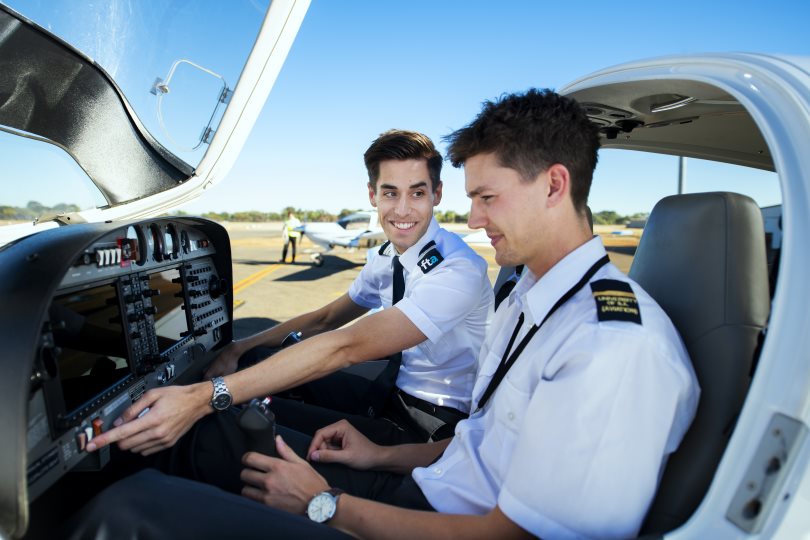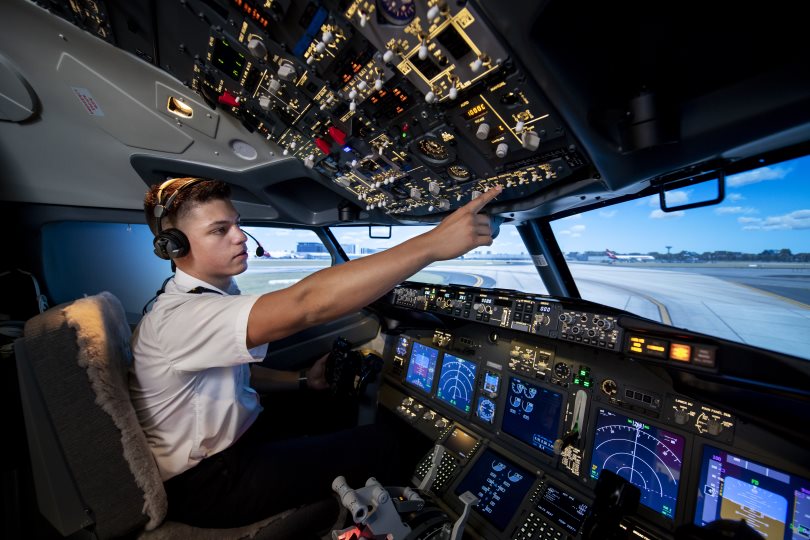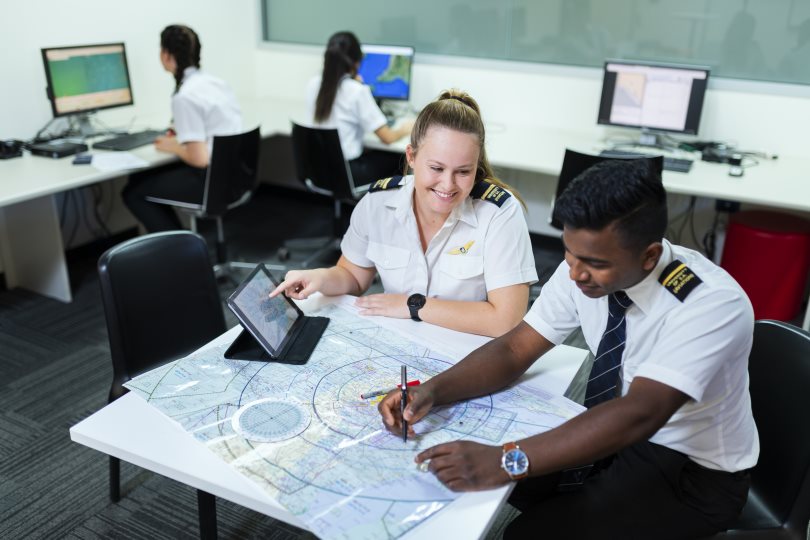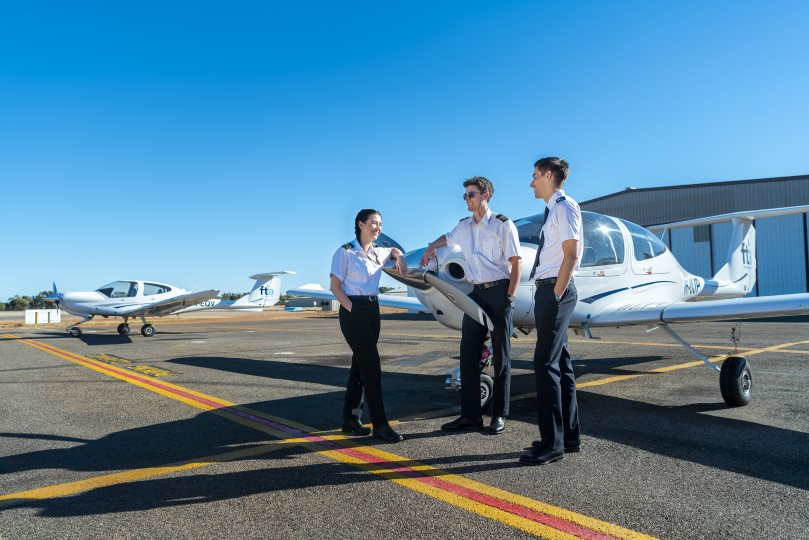Graduate Diploma in Aviation
Degree Level Postgraduate
Year 2025
You're considered an Australian student if you are any of the following:
Degree Level Postgraduate
Year 2025
Program Code
LGAN
Study as
Full-time
or part-time
Mode
On-campus
Fees
$AU 115,800 per 1.0 EFTSL for students enrolled in 2025
Applications for this program are by invitation only. Applicants are required to have a current enrolment in a qualifying UniSA Bachelor of Aviation degree.
An offer of entry into the Graduate Diploma in Aviation will be made when the following additional requirements
are met. Applicants are required to be selected via a process which includes:
In addition:
Applications for this program are by invitation only for students who have a current enrolment in a qualifying UniSA Bachelor of Aviation degree. UniSA works with its flight provider to deliver training for students. Aircraft have restrictions and minimum standards for safe operations; continued enrolment is subject to approval by the provider.

Make your dreams of becoming a pilot a reality, and develop the skills and knowledge to work as a first officer in a multi crew aircraft, or as a pilot in command of most single engine operations.
The Graduate Diploma in Aviation is a highly disciplined, technical flight training program at Parafield Airport. It is delivered in conjunction with the professional flight instructors at Flight Training Adelaide, our industry partner.
This qualification equips students with the skills, knowledge and competence to sit the Civil Aviation Safety Authority (CASA) exams for a Commercial Pilot Licence (CPL) and Multi-engine Command Instrument Rating (CIR). These are professional qualifications recognised by the Civil Aviation Safety Authority (CASA) and the International Civil Aviation Organisation.
The Graduate Diploma in Aviation is delivered at the UniSA Aviation Academy at Parafield Airport. It is studied alongside the Bachelor of Aviation (Pilot).

This diploma comprises seven courses delivered with our industry partner Flight Training Adelaide. You will study them at the same time as the Bachelor of Aviation (Pilot).
As part of this diploma you will sit the Civil Aviation Safety Authority (CASA) theory exams. Your studies in the Bachelor of Aviation (Pilot) will help prepare you for these exams.
When you have developed the flight skills and knowledge – and passed the CASA theory exams – you can test for your Commercial Pilot Licence (CPL) and Command Instrument Rating (CIR) flight.

You will work with industry experts, flight instructors and academics. They will prepare you with the flight training skills to enter the aviation industry as a pilot.
We emphasise hands-on, practical knowledge. This program offers flight training in single and multi-engine aircraft, giving our students the opportunity to master professional flight training competencies. The theoretical training learned in the Bachelor of Aviation (Pilot) alongside the highly disciplined, technical flight training in this graduate diploma makes our graduates much sought after by airlines.
As part of this diploma, you will prepare for and sit the Civil Aviation Safety Authority (CASA) exams for a Commercial Pilot Licence (CPL) and Multi-engine Command Instrument Rating (CIR). These professional qualifications are recognised by CASA and the International Civil Aviation Organisation.
Sam Rogers talks about his experience studying UniSA's Bachelor of Aviation (Pilot) and Graduate Diploma in Aviation, where he completed flight training at UniSA's Aviation Academy.

Within the next 20 years, it is predicted there will be a demand of 837,000 new personnel required in the Asia-Pacific region. Although the aviation industry is currently experiencing a downturn driven by the COVID-19 pandemic, the long-term need remains robust with anticipation of growth to the sector in coming years.1
You could consider the following careers:
1Boeing 20-year Pilot, Technician and Cabin Crew Outlook 2020 - 2039
Have any questions? We're here to help! Contact Adelaide University's Future Student Enquiries Team.
Entry into this program is competitive and strict standards of behaviour apply. In order to be selected, applicants must be currently enrolled in the Bachelor of Aviation (Pilot) program. Students in the Bachelor of Aviation will be contacted when applications are open for the next intake.
Every year, over 2,500 UniSA students are supported in their studies through scholarships and grants worth millions of dollars. Check out the scholarships below. One of them may be perfect for you. Visit our scholarships page for more.
Available for students who are interested in undertaking specified activities with the aim of enhancing the overall student experience at UniSA.
Travel Grants are available to participate in our Study Overseas Programs. UniSA has agreement with over 80 institutions globally.
Our campuses have fantastic facilities including modern lecture theatres, libraries, workshops, laboratories, tech zones, and spaces that simulate real work environments. You’ll also find student gyms and campus sport activities to keep you active. We also offer flexible study options, with online resources available for accessing lecture recordings, virtual classrooms, library resources and learning support.
Adelaide also has a variety of accommodation options to suit different requirements and budgets. Options include dedicated student accommodation and private rentals. See our long-term accommodation pages, or explore our student accommodation by Scape on Bank Street in Adelaide’s lively cultural precinct, an ideal location for students. It is within easy reach of UniSA’s city and metropolitan campuses, Rundle Mall shopping, the Central Market, Chinatown, and the West End’s vibrant nightlife. It is also across the road from the Adelaide train station, and on bus and tram routes.
The UniSA Aviation Academy at Parafield Airport is fully equipped for flight training with networked classrooms, a student lounge, briefing rooms for one-on-one time with instructors and a flight planning area.
An operations room is staffed by qualified personnel who maintain a ‘flight watch’ service for all FTA aircraft in the air. Students have immediate access to weather, NOTAMS and other flight planning data as required.

I’m an academic in UniSA’s aviation program, I teach courses and conduct research into aviation safety, specifically in standardisation and multiculturalism. My colleagues and I work on projects in aviation safety with airlines and airports, so we maintain a close connection to industry. This really helps us to be certain that the coursework and materials we provide students satisfy the needs of industry and represent academic excellence.
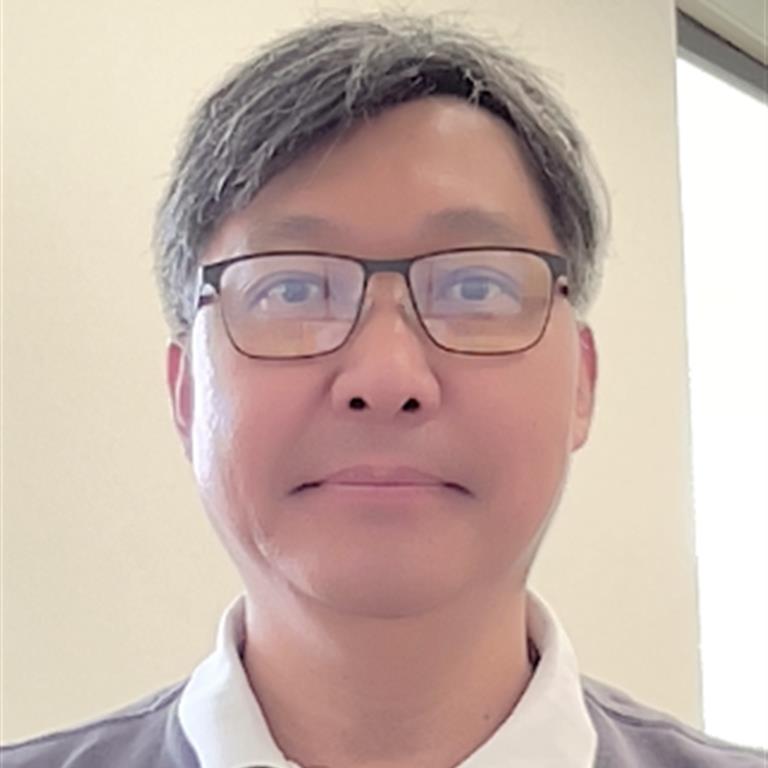
The way you apply for UniSA will depend on the undergraduate or postgraduate coursework degree you're interested in studying.
The majority of applications are made via the South Australian Tertiary Admissions Centre (SATAC). Check out more information on the SATAC website and follow the appropriate process for your degree of interest.
There are a small number of degrees that you need to apply for through direct application processes. The process you need to follow will be listed on the 'How to Apply' section of the degree homepage, but you'll also be taken to where you need to go if you hit the 'apply' button.
If you are interested in studying one of our 100% online degrees you'll need to apply directly to UniSA Online.
You can find more information about the application processes for UniSA on our How to Apply webpage.
If you're more interested in applying for a postgraduate degree by research, check out and follow the information in our step by step guide to applying.
Applications for all degrees will close ahead of study commencing, but the timelines may vary for undergraduate and postgraduate degrees.
The deadline to apply to study a degree at UniSA for semester one (commencing late February) and be guaranteed equal consideration is generally in very late November or early December. While you may be able to apply after this date, you are not guaranteed to be considered equally with other applicants and your application may not be assessed in time for the main round of offers. More competitive degrees may not make any offers after the main offer round. Find more information on the Key Dates section of the SATAC website, but you can also call the Future Student Enquiries team for more information on 08 8302 376.
Many postgraduate by coursework degrees do not have set closing dates. The exceptions are highly competitive degrees, so it is best to check – either on the degree homepage on the SATAC website or by checking with our Future Student Enquiries team.
As most postgraduate applications are assessed as they are submitted and offers are continuous, there are no set closing dates for applications. Degrees can be filled and closed with little notice so it is best to apply as soon as possible to avoid missing out on a place. For more information, please contact our Future Student Enquires team on (08) 8302 2376 or submit an enquiry.
You may be eligible for credit or advanced standing for your chosen UniSA degree based on your previous studies, if they are in a related area and completed within a certain timeframe. Receiving credit or RPL will reduce the number of courses you undertake within the degree, and may also reduce the overall duration of your degree. You can read more about our pre-existing credit agreements through our online Credit Assessor. If you have related industry experience, you may also be eligible to receive recognised prior learning (RPL) for this experience. Credit and RPL is assessed by the Program Director once you've received an offer, and you apply through UniSA's current student experts, Campus Central.
Future Student Enquiries welcomes the opportunity to meet with you to discuss your study options at UniSA. We can discuss degree information, entry requirements and pathways, applications, general career outcomes and student life, so you have the information to make the best study decision for your future. Head to our Book an Appointment webpage to find a date and time to speak with us, and take your next steps on journey to university study.
